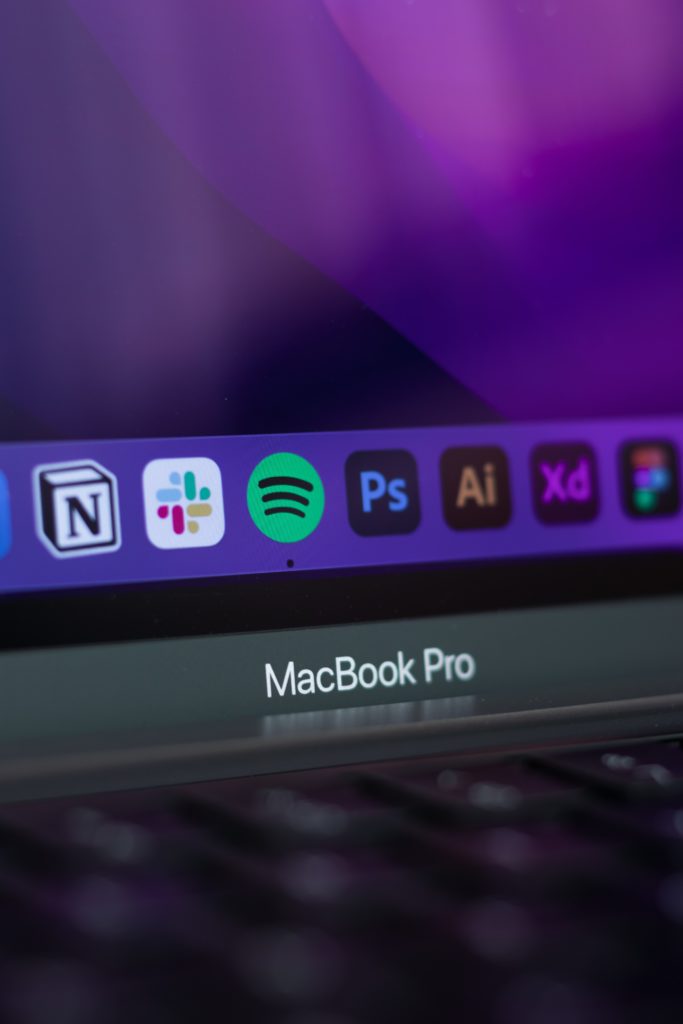
At the end of the day, your law firm is just like any other business. You need to stay in the black while offering clients the best service you can. To do this, the firm as a whole must become operationally efficient, and each individual attorney must also be highly organized and productive.
This is often easier said than done.
In the quest to continually improve productivity, many have grasped at different tools and applications to make project management, note-taking, and overall organization easier. As we know, the more quickly we can search and find what we need, the more efficiently we can work – and the more hours we have at the end of the day that are billable.
One tool that’s gaining a lot of traction among a subset of tech-savvhy lawyers is Notion. This app-based solution is completely customizable and popular in part because it has so many capabilities all in one tool, including the ability to serve as your law firm’s operating system.
In this article, we’ll discuss all things Notion and dive into the specific ways it can be leveraged as a tool to help your law firm grow. You’ll learn
- What to consider when evaluating Notion as a productivity app
- How to make Notion your law firm’s operation system
- Why (and how) to create SOPs in Notion
- How to use a calendar in Notion (and other tips to improve your workflow and productivity)
If you have questions about how technology – either Notion or other tools – can be better implemented at your law firm, please get in touch with our team at Honeycrisp to schedule a free consultation.
What is Notion and Why Should Your Law Firm Consider Using It
Like any app, Notion is only a tool. It’s up to you to use it in a way that will be most beneficial to your style of work and your organizational system for tracking projects and taking notes.
The good news is that because it is so customizable, you can develop it in whatever way makes the most sense for you and your firm. There are numerous templates available for customization – or you can build your own.
Notion shines as a note-taking app for two primary reasons:
- It’s customizable.
- It’s collaborative.
While there are many other advantages to lawyers using Notion professionally, customizability and collaboration rise to the top for lawyers because the tool allows you to take your notes from something of a brain dump and turn them into an organized notebook of useful information that can be shared, edited, commented upon, and (perhaps, most importantly!) quickly and easily found again.
Here are a few other reasons Notion has grown in popularity with lawyers and how it can benefit your productivity:
- Notion’s Personal plan is free, and this plan can be shared with up to 5 users. The upgraded Personal Pro, Team and Enterprise packages are also available.
- It has all-in-one capabilities – you can use it to take notes, organize notes, manage cases and files, and even do your accounting. And because it can do it all, that means everything you need is also all in one place. No more jumping between apps, your Mac, and your hand-scribbled notes to find what you’re looking for.
- It’s collaborative – Your assistant can jump in, update your calendar, help with research, etc. Notion also has a browser extension, which makes clipping pages and adding notes to reference later easy. As mentioned, one of its best features is that it helps you and your team stay organized and easily find what you’re looking for any time, any place.
Now that we know why Notion can be beneficial to your law firm, let’s discuss how you can move forward with its application in practice.
How to Use Notion for Your Business’ Operating System
Like any enterprising business, your law firm is a living, breathing entity that has myriad aspects to manage. Keeping organized is essential, but we get that it can feel impossible when you’re buried beneath piles of pressing casework.
To become a more efficient and profitable business, finding ways to streamline your daily workflow is important.
Enter Notion.
At the most basic level, Notion is intended to help you work faster, smarter, more collaboratively, and with a clear purpose.
Lawyers appreciate its note-taking capabilities as well as its ability to prioritize tasks, organize shared documents, and implement repeatable workflows that can be used by the entire team.
Yet implementing a new operating system can feel daunting, especially if you start with a blank canvas.
Instead, try turning to some existing Notion templates to help you streamline your law firm’s operating system. A good suite that can be helpful for law firms is Enterprise OS for Notion.
As a company management system, it provides a functional foundation for you to improve the ways in which you do business. Within it, you can rely on dashboards for managing your operations and subgrouping to stay organized. The Main Hub houses things like your:
- Daily task list
- Company wiki (or knowledge bank)
- Meeting notes
- Project files
- Project roadmap
- Dashboard and more
Notion allows you to manage tasks by status, timeline, project type or any other organizational system that works for you. By starting with a template for your operating system, you can then continue to improve and customize the processes that work best for your law firm.
What Else Can Notion Templates Be Used For?
Another place to use Notion templates is when developing and documenting your law firm’s Standard Operating Procedures, or SOPs. SOPs have a bad rap – not because they aren’t useful (they absolutely are!) – but because they have a reputation for being a pain to write and maintain.
We’re here to put an end to any negative stigma SOPs carry and explain just how important they are and how easy it is to create an SOP for your law firm.
Why (and How) to Create SOPs in Notion
SOPs are invaluable resources that enable your law firm to implement repeatable processes with consistency and success.
And for us, one of the strongest arguments for using Notion as your law firm’s operating system is straightforward – once your staff are accustomed to using the platform, it will be easy and natural for them to go in and adjust SOPs as needed.
This in turn makes your entire business operation more efficient, which means you can spend more time focusing on billable projects and less time figuring out the best way to onboard a new client each and every time you do it.
How to Make an SOP for Your Law Firm’s Operations
An SOP writes down the details of any given process from start to finish. By being explicit with which steps to take and when, the entire process becomes easily repeatable, sustainable, and therefore helps your law firm remain profitable.
There are three basic steps to make creating an SOP easier:
- Start with a template – Notion offers a free standard operating procedure template for you to download, duplicate and do whatever you’d like with it. The template may not have everything you need to document your process, but it will be a good place to start.
- Include the following elements – Your SOP will be customized for your law firm’s workflow, but there are a few components that make any SOP a good one.
- They unify employees/users – The SOP becomes the single guiding light for whatever process it describes. It should be the one and only source users follow when undertaking a particular process.
- They are heavy on the details – Your SOP should be able to function on its own without any additional hand-holding from another employee. Any user should be able to read through the document (and/or watch accompanying videos or illustrations) and know exactly what to do. No questions asked.
- They are all consistently formatted – Follow the same naming convention for each SOP and format them consistently and logically.
- Store it in a shared location – For an SOP to be useful, it has to be accessible. By storing it in a collaborative platform like Notion, all users can easily find it as well as access any relevant accompanying resources.
We can’t deny that creating SOPs takes upfront time and effort, and we fully understand that it’s not everyone’s idea of a good time.
On the other hand, the payoff is huge, and it comes back in the form of improved productivity, reduced confusion and seamless consistency across your entire law firm’s operation.
To Conclude: Using Notion to Improve Your Firm’s Workflow and Efficiency
In this article we’ve touted the benefits of Notion as an all-in-one note-taking app and productivity tool that offers many advantages to lawyers. You truly can use it to do as much or as little as you’d like by customizing every aspect of the platform.
Not only can Notion help keep your case files and research notes organized, but it is also collaborative, which means your assistant or law partners can jump in and directly contribute to a project in an organized and efficient way. For example, one feature many lawyers find helpful is the Notion calendar.
After making a calendar in Notion, you are able to see a full overview of your project timelines and where they align with other important dates. This is useful for ensuring you stay on track with deadlines and are prioritizing the most time-sensitive projects.
Your options for improving your law firm’s workflow and efficiency are seemingly endless with a tool like Notion. But, as always, we like to remind our clients that any technology tool, automation or other slick software is no magic bullet. It won’t quickly and simply solve all your problems. Technology is only a tool – a tool that needs to be used correctly if you want it to help your firm grow.
For guidance in making the most of your technology, or to learn more about the best ways to use an app like Notion at your Mac-powered law firm, contact our team at Honeycrisp.


